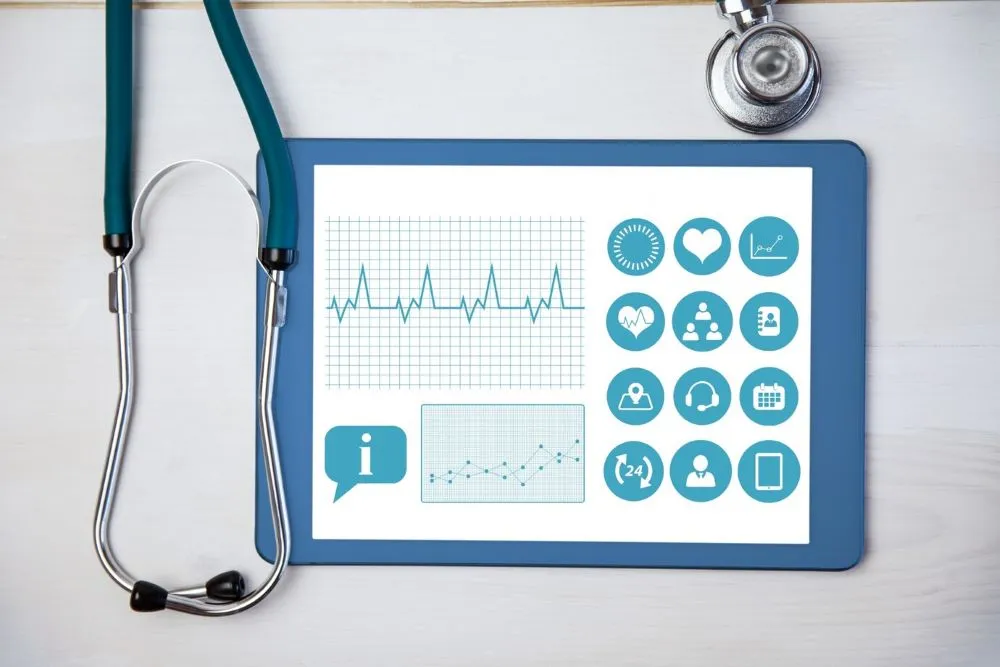A 2024 MGMA Stat poll found that 62% of its hospital respondents planned to automate their revenue cycles by more than 20% until 2026. This shows the onset of automation in healthcare revenue cycle management. This blog covers how it can increase the efficiency of medical practices.
We covered the types and workflows of RCM automation, along with its challenges and benefits. The blog also highlighted the role of RPA and its examples. Then, there was a mention of the common automation techniques implemented. Continue reading to get your automated revenue cycle management solutions from Health Quest Billing.

Types Of RCM Automation
Keeping the revenue cycle efficient is important for healthcare organizations. Automation can improve this process and make your operations smoother. Let’s explore three primary types of revenue cycle management automation:
1. Eligibility Verification Automation
This automation confirms patient insurance details before treating them. It connects hospitals with insurance providers so they can get real-time information. This information is mostly about coverage, copays, and deductibles. By using this automated system, you can prevent claim rejections and delays.
2. Claim Management Automation
This type of automation simplifies the claim handling process from start to finish. It checks reimbursement claims for mistakes and uses templates for their accuracy. Then, it helps you send those claims to the appropriate insurance companies. In addition, it also tracks their status and updates.
3. Payment Processing Automation
This automation manages the processing of payments and the balancing of healthcare accounts. It automatically places those payments into the right patient accounts. It also validates whether the transactions are correct or incorrect. This cuts down on the manual work for you. It also reduces the overall time for the payment collection process.

Automatable Revenue Cycle Management Workflows
Automated workflows in RCM have several important functions. With those functions, workflows can ensure a smooth financial operation. These workflows are based on specific systems. They can update and manage patient records and appointment schedules. While doing this, their systems ensure that all data is correctly entered for processes like accounts receivable management.
Healthcare organizations can also utilize automated workflows to manage complex billing cycles. They can communicate better with insurance companies. They can also ensure faster and more accurate billing through automation. These features can increase the revenue flow of such healthcare organizations.
Finally, automated RCM solutions can track patient payments as well. This ability works for outstanding balances as well, with greater precision. Such reminders also result in a steady flow of revenue. You can also use detailed financial reporting tools for better financial planning.
Benefits of Revenue Cycle Management Automation Software
Revenue cycle management (RCM) automation software can significantly upscale your financial operations. It can simplify your complex processes and reduce manual effort. Tools similar to that software can also offer significant advantages. Here is how:
1. Increased Accuracy
Automation software prevents human errors in billing and coding. This leads to more accurate invoicing and claim processing. This accuracy helps you reduce claim rejections and denials from insurance companies. You can also ensure that your financial statements are reliable.
2. Enhanced Efficiency
RCM automation software also speeds up the entire revenue cycle. You can experience faster processes, from patient registration to final payment. Automated systems handle repetitive tasks quickly. This way, they free up staff to focus on more decision-making activities.
3. Improved Patient Satisfaction
Automation streamlines your billing and payment processes. It ensures that your patients receive timely and clear billing details. Faster processing and fewer billing errors create a smooth experience for patients. It can increase their overall satisfaction and patient loyalty.
Challenges with Revenue Cycle Management Automation
Automation in revenue cycle management has its fair share of challenges as well. Ranging from maintenance costs to user adoption, they can impact the effectiveness of automation. Here are the three major challenges that are regularly faced by healthcare organizations:
1. High Initial Investment
Setting up automated RCM systems often requires a significant initial investment. The costs include the software and hardware. You also have to integrate and customize them to fit specific organizational needs. All this has high upfront costs that can be a barrier.
2. Maintenance and Upgrades
Automated systems also require regular maintenance and updates. They are important for those systems to stay effective and secure. Managing these updates can be challenging, as they can disrupt your existing workflows. They may also need additional training from your end.
3. Complexity in Handling Exceptions
Such systems excel at managing routine tasks. But they can struggle with exceptions or unusual cases. On multiple occasions, unique or complex patient billing issues arise. In such cases, reliance on automation can cause errors or oversights.
Role Of RPA For Revenue Cycle Management
Robotic Process Automation has an important role in improving revenue cycle management in healthcare. Its tools can handle repetitive tasks quickly and without errors. They can free up healthcare organizations to focus on more complex issues.
This shift can significantly increase your productivity and cut operational costs. Moreover, RPA can also adapt to different scenarios. It becomes a flexible solution that improves over time and learns from its tasks. This is how RPA brings consistency and reliability to daily operations.
Those aspects help healthcare organizations maintain a steady flow of work. They also prevent delays and make RPA a powerful tool. It can boost the efficiency of any medical practice and streamline its revenue cycle management.
RPA Examples For RCM
There are various examples of implementing Robotic Process Automation in the revenue cycle management of healthcare providers. Some of the major ones include customer service operations, data management and reporting, and compliance monitoring.
1. Customer Service Operations
RPA can automatically handle routine customer queries and requests. They include account balances or payment due dates. This is how RPA enables your customer service reps to focus on solving more complex issues. You are able to deliver with quicker response times and higher customer satisfaction. Your clients receive immediate help for basic questions and more personalized attention.
2. Data Management and Reporting
In many organizations, compiling reports and managing data entries are time-consuming tasks. RPA software can be programmed to collect, organize, and update data. It is done across multiple systems without any manual input. This automation ensures data accuracy and availability. It also provides reliable information for decision-making. You can free up your employees to engage in more analytical and strategic activities.
3. Compliance Monitoring
Robotic Process Automation significantly improves compliance monitoring for healthcare organizations as well. Many hospitals have to follow strict and challenging regulatory requirements. RPA tools can monitor your compliance across systems. It can automatically update records and alert staff in case of discrepancies. This proactive approach helps prevent violations and fines for healthcare organizations.
List of Automation Techniques for Efficient Revenue Cycle Management
There are various automation techniques that you can use to make your revenue cycle management more efficient. They mostly include machine learning, blockchain technology, and artificial intelligence.
You can also integrate EHRs, predictive analytics, cloud computing, and robotic process automation within your revenue cycle. Other efficient RCM automation technologies comprise natural language processing and electronic health records.
1. Machine Learning and Artificial Intelligence
These techniques have specific branches of advanced data analysis that can be enabled to boost the efficiency of medical revenue cycles. They are mostly based on predictive modeling, in which you can identify patterns in patient datasets to conduct future denial management.
These are automated tasks for certain financial operations that enable you to streamline your billing procedures. In addition, you can use AI-powered chatbots to establish smooth and efficient communication with your patients.
This way, you can also respond to their queries related to medical billing and insurance coverage. Healthcare professionals can use this tool to provide further details about healthcare services and their payment plans.
2. Blockchain Technology
Automation also provides an efficient way to build up the security and transparency of your healthcare system. Blockchain technology is one of the leading ways in which you can maintain tamper-proof and decentralized records.
These records can involve financial transactions, patient details, and other data to minimize fraud risk. Blockchain lets you maintain accurate billing management, allowing you to efficiently generate accurate medical bills. These bills are primarily for your procedures and treatments.
Hospitals and clinics can also securely share sensitive data with other stakeholders, like insurance companies. Blockchain technology is specifically aimed at maintaining all healthcare regulations for compliance and privacy.
3. Predictive Analytics
Predictive analytics is one of the many efficient procedures of revenue cycle automation. It allows you to utilize your historical patient, financial, or other data to derive predictions for future outcomes. You can use it to execute various healthcare processes.
Medical institutes can anticipate future claim denials from insurance providers and assess patterns of patient payments. This way, they can utilize predictive analytics to efficiently collect reimbursements and streamline their revenue cycle.
Furthermore, you can analyze past patterns and trends in your financial operations and use the analysis to identify potential discrepancies. These discrepancies are identified before they occur, which means you can always devise mitigation measures against their financial risks.
4. Cloud Computing
Many hospitals and clinics are prominently focusing on cloud computing for revenue cycle management automation. They are allocating resources towards integrating cloud-based solutions to manage their revenue cycle.
Cloud computing can make financial systems more accessible and scalable, which eventually saves on maintenance costs for healthcare organizations. It enables you to store and access your financial data in secure digital locations.
It also places you in an ideal position to collaborate with your patients and their insurers. Your collaborations facilitate effective data management through organizational efficiency. As a result, cloud computing turns out to be significantly cost-effective for medical institutes.
5. Natural language Processing
Natural language processing is an additional automation technique capable of understanding and interpreting human language. This feature enables it to extract billing codes for your medical services through an analysis of relevant documents.
It is particularly useful for hospitals and clinics as it facilitates you to automate your healthcare documentation processes. It is also a cost-effective and efficient technology that handles their financial operations, particularly revenue cycle management.
You can set up a natural language processing workflow for your revenue cycle and revamp its billing and claims processing tasks. As a result, you can also establish a smooth and efficient experience for your colleagues and patients and maximize financial output.
Automate RCM With Health Quest Billing
Health Quest Billing provides effective solutions for hospitals to automate their RCM. We can streamline various aspects of your billing workflow. It can make it easier for you to manage your financial processes efficiently. At Health Quest Billing, we can also reduce the time spent on administrative tasks.
By choosing us, RCM automation brings several benefits for your practice. It is user-friendly, so your staff can easily adapt to the system. This ease of use is important for a smooth transition to automated processes. Health Quest Billing also provides real-time analytics and reporting features.
You can use these tools to monitor your financial performance and make informed decisions. Our RCM automation services increase accuracy in financial operations by reducing human error. We prioritize the handling of reliable financial data to modernize your RCM. This is why, Health Quest Billing is an excellent choice for automated RCM.
The Bottom Line
This blog discussed how healthcare organizations can increase their efficiency by automating their revenue cycle management. We first looked at the types of RCM automation and workflows. Then, we explored the benefits and challenges of automating a healthcare RCM.
We also shed light on robot process automation and its examples. Finally, there was a list of automation techniques discussed as well. Contact us to get your RCM automated as well, through a bunch of professional experts.







 10 mint read
10 mint read